Stories > The Gift Of Water
The Gift Of Water
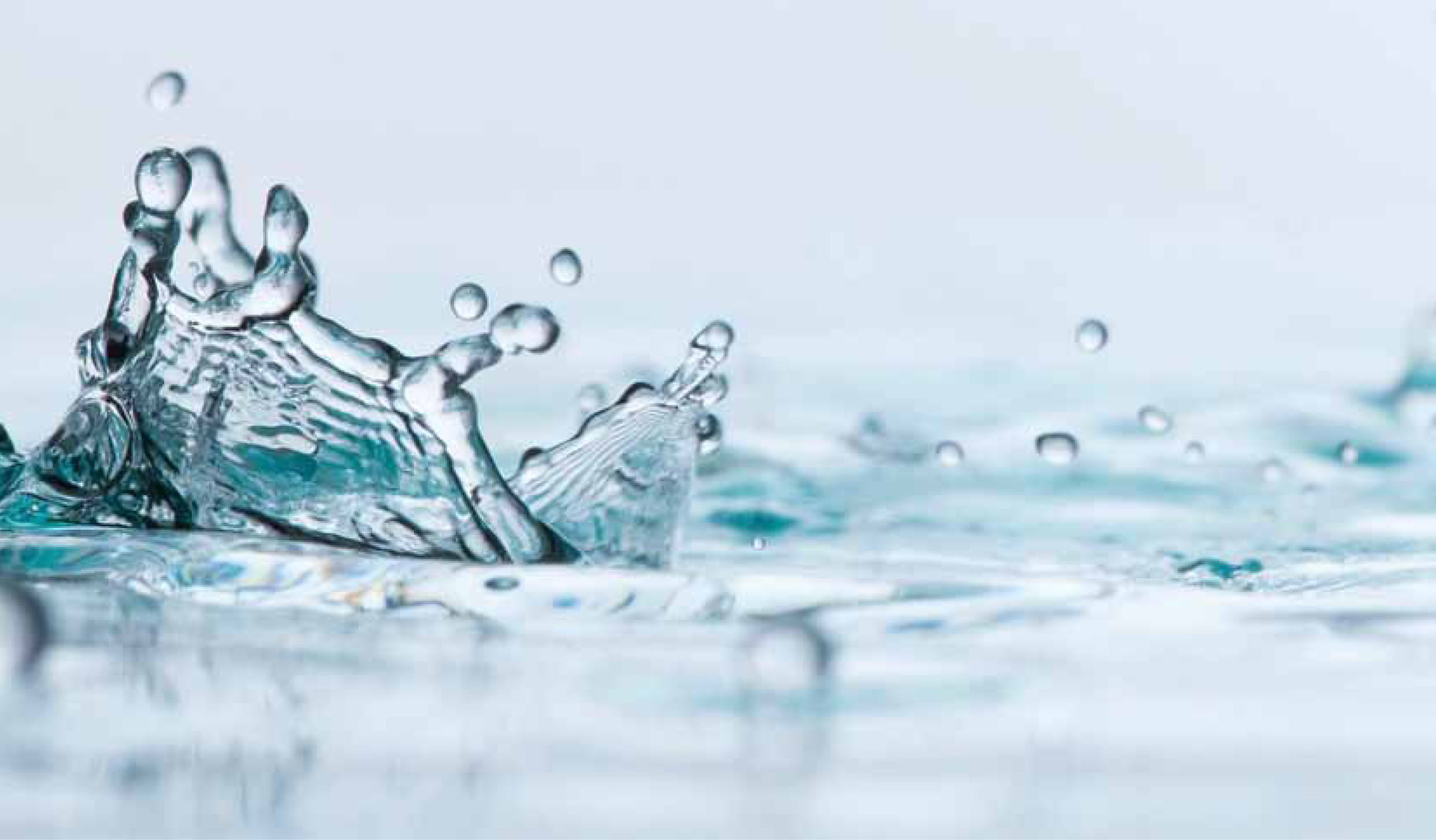

Lack of access to clean water is at the heart of today’s global water crisis.In Singapore, three local entities are pitching in to do their part to create sustainable solutions for challenged communities in Asia.
By AJ Leow
he threat of a future global water shortage, poor infrastructure,low community development in rural areas and poverty are issues some nations grapple with. It is reported(water.org) that nearly one billion people do not have access to safe drinking water. Against this backdrop, volunteers from Lien AID, PUB, Singapore’s national water agency and Singapore Polytechnic have set out to make a difference. Their resources – an innovative mindset and willing hands. Combined, these produce cost-effective solutions for the long-term in rural communities.
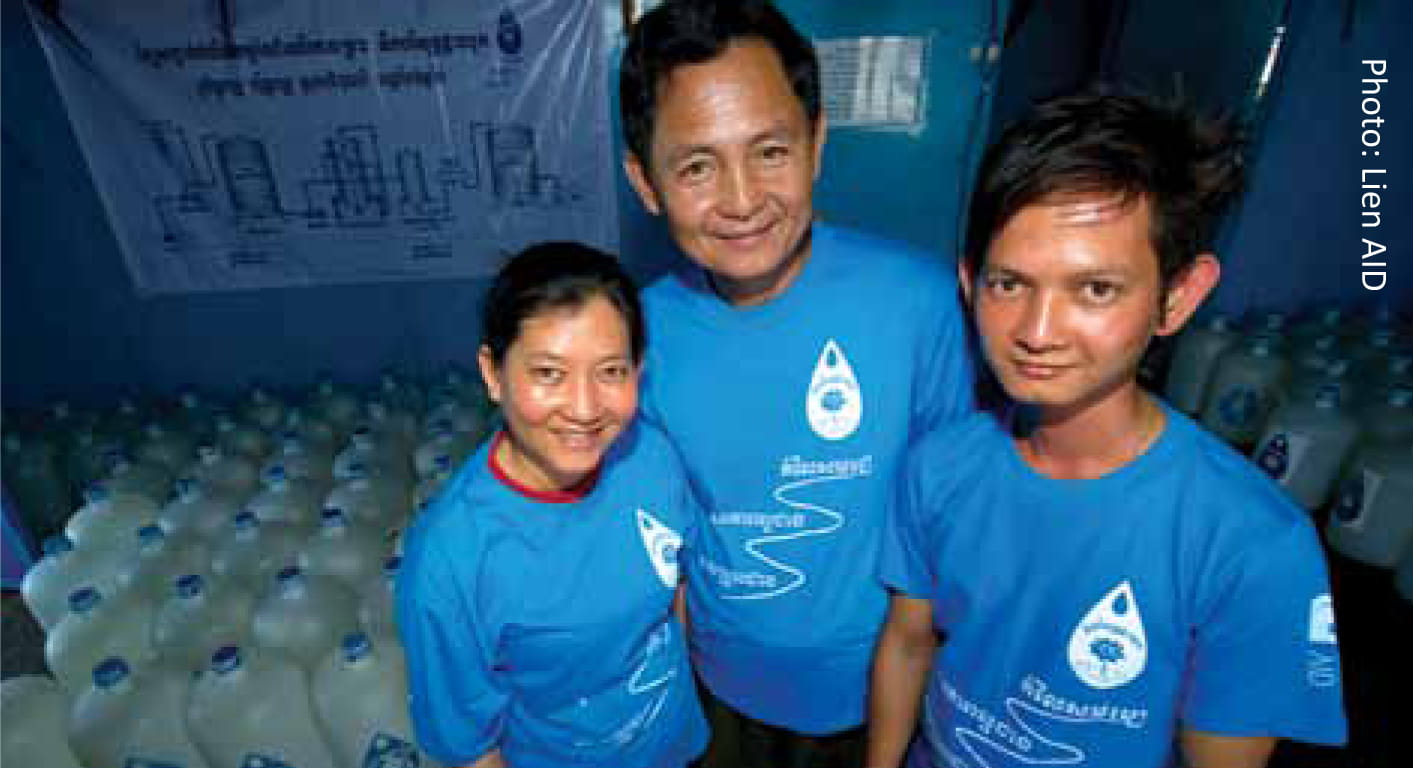
Local Cambodian entrepreneur Meas Mom (extreme left) seen here with her husband ChhorLime and son Ly Vichet, received technical and business training conducted by Lien AID on how to run the community water enterprise at Chhnok Trou Commune in Kampong Chhnang province in Cambodia.
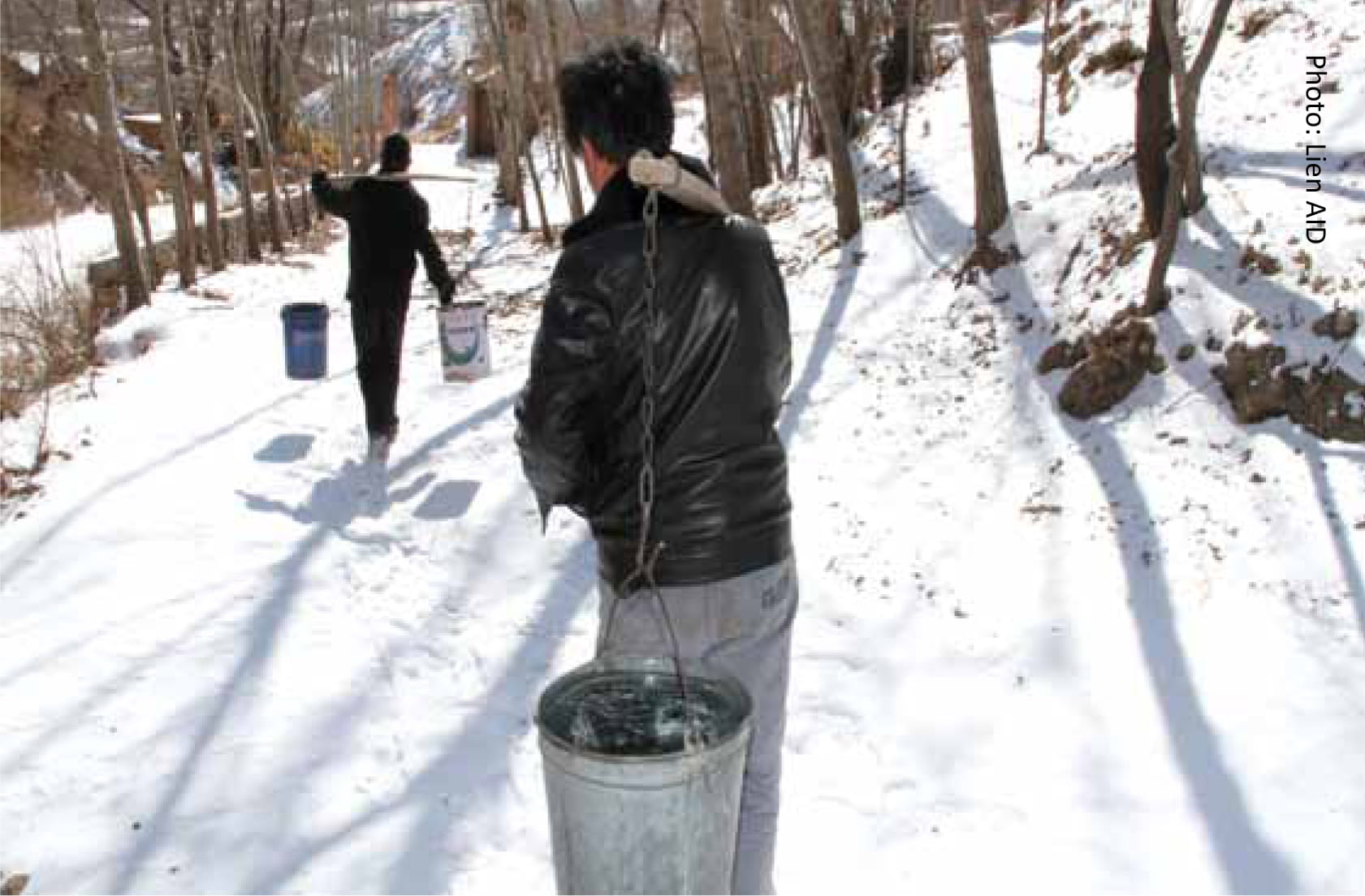
Chinese villagers brave harsh winters of up to-30 degree Celsius to fetch water up to thrice daily for families and animals. Lien AID is working with the China Association of Poverty Alleviation Development to improve water and sanitation conditions in 100 villages in China by 2015.
“When I drink the water, I have to shut my eyes,” said Cambodian Pindany Phhoung, referring to the unclean water which she lives with. Phhoung is among the 1.2 million people who live at the water’s edge surrounding Southeast Asia’s largest freshwater lake, Tonlé Sap in Cambodia, where access to clean drinking water is limited.
Despite being a UNESCO-designated biosphere since 1997, Tonlé Sap’s water remains heavily polluted by human and animal waste and industrial run- off. A September 2012 study conducted by the Lien Foundation and Nanyang Technological University revealed that one in nearly nine villagers in a rural commune drink directly from a stream leading to the lake. Like Phhoung, they run the high risk of contracting water-related diseases such as diarrhoea and typhoid.
“The choice is quite stark for many living in the floating villages at the lake,”explained Koh Lian Hock, Chief Executive Officer of Lien AID. “They need to buy cooking gas at considerable cost or seek dry firewood (which may be hard to get,especially during the wet season) to boil the water for drinking.”
Piped water, he added, is limited due to the nature of the floating villages and the annual downpours during the monsoon season. Between June and October, the lake swells by over five times its normal volume — from 2,700 sq km to 16,000 sq km and the water rises from one to nine metres in some places.
Since 2006, Lien AID has embarked on several dozen clean water projects in Cambodia, Vietnam, China and Indonesia. It has also, since 2010,been stepping up its efforts to build more water treatment cum bottling plants for the communities around the lake in Kampong Chhnang province,Cambodia.
Over the coming months,this will include new facilities in five more provinces, bringing the number of facilities to 12. These were built a tan average cost of US$25,000 per plant.Villagers can buy clean drinking water at US20 cents per 20-litre bottle, a fraction of what they used to pay — US$1 for a 500ml bottle of mineral water.
Koh added that running costs after installation are low, mainly from replacing two filters at approximately US$100 annually. The system is fitted with ultra-violet water purification features that include filters to deactivate micro-organisms and harmful bacteria that cause water-related illnesses.
Many rural poor do not seek medical treatment as their meagre incomes won’t allow it.
Koh elaborates, “We try to ensure that these water projects are sustainable over time as Lien AID cannot be there to support them in perpetuity. With the aid of local NGOs and village communities,we source for local suppliers and pass on our knowledge and expertise so that they can manage the plants themselves and rely on the local supply chain without the need to source for replacement parts overseas.”
Local social entrepreneurs are encouraged to charge a nominal fee for supplying potable water to the community and offer their services to schools in the vicinity on an ex-gratia basis. These locals sell clean water to the poorest at an additional discount.
“We would like them to take ownership as well as convey the message that clean water does not come free,” said Koh. But even with the best intentions, plans sometimes go awry, as was the case with a remote mountain village in Yunnan province two years ago.
“Our idea is to develop the framework for the water and sanitation initiatives, and hope the local communities will be able to take over and lead the projects in the long run.”
— Koh Lian Hock, CEO Lien AID
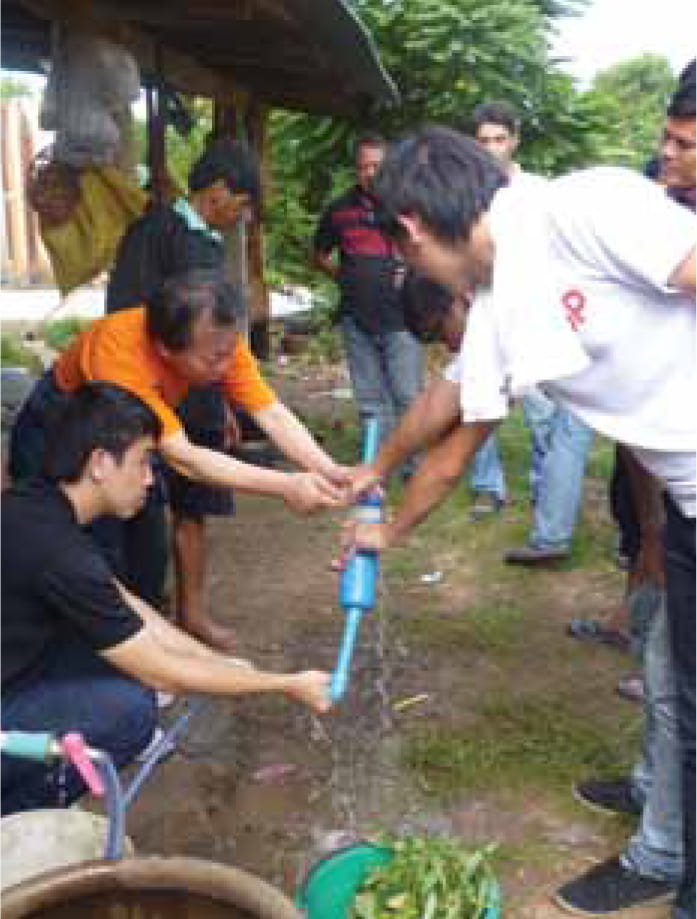
Dr Liu Kao Xue from Singapore Polytechnic(in orange) and students Poh Tian Han(squatting) and Jason Ang (in white) showing the Thais how to change the charcoal filter in the water treatment facility.
message that clean water does not come free,” said Koh. But even with the best intentions, plans sometimes go awry, as was the case with a remote mountain village in Yunnan province two years ago.
Lien AID is working with the China Association of Poverty Alleviation and Development to improve water and sanitation conditions in 100 villages in China by 2015. Its volunteers donated personal funds to top up the water in several rain storage tanks installed during the dry season. On a subsequent visit, they discovered that the villagers had used most of the water for local weddings and festivities before the on set of the rainy season. As a result, Koh said,“We had to refuse their second request and they had to get their water from the nearby streams, 45 minutes away.”
Lien AID is currently involved in seven clean water initiatives in parts of China and it leverages on the goodwill of local champions identified and trained through Lien AID.
“Our idea is to develop the framework for the water and sanitation initiatives,and hope the local communities will take over and lead the projects in the long run,” said Koh. Lien AID carries out follow-up assessment tours with the help of student and corporate volunteers to review the results.
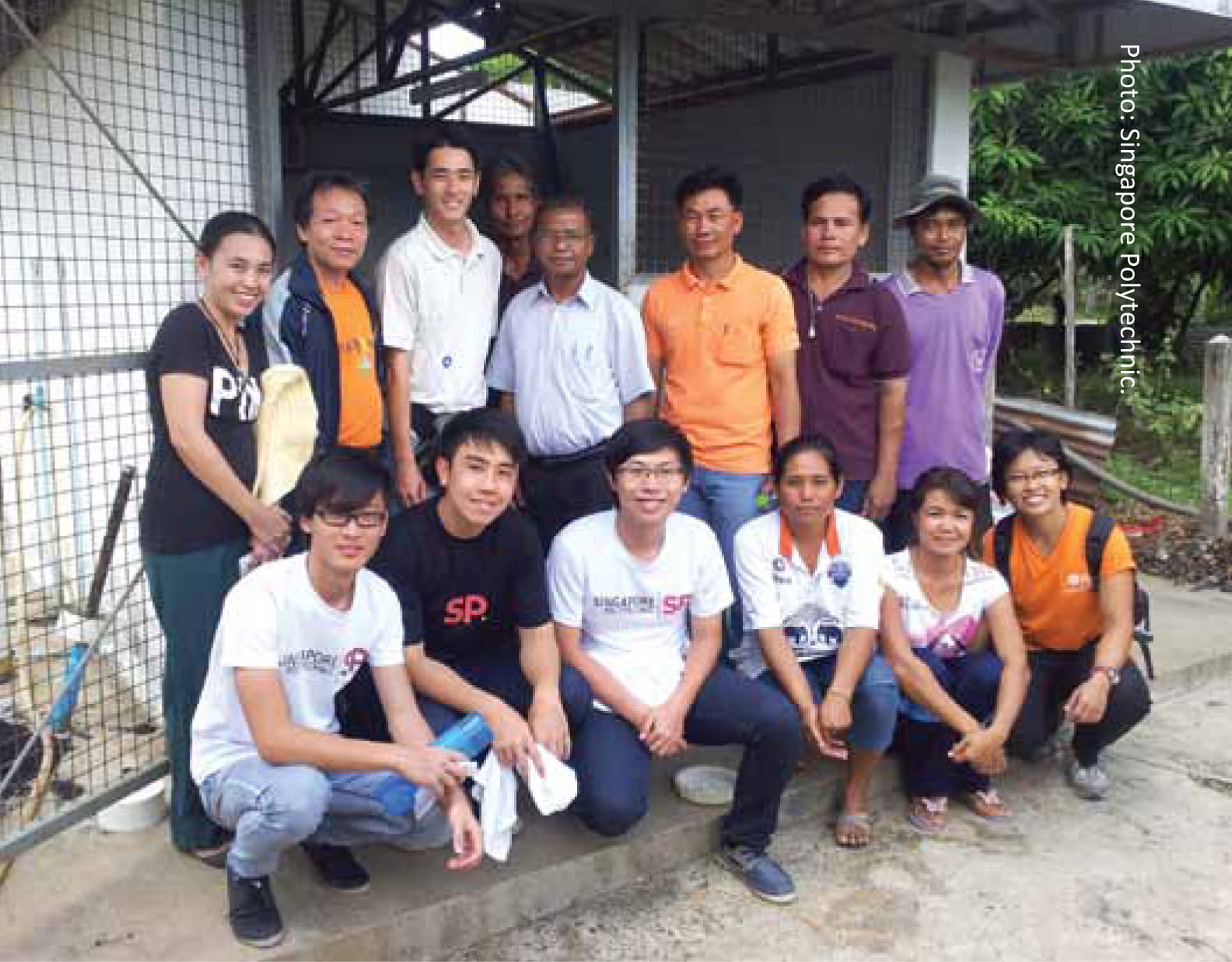
Dr Liu Kao Xue from Singapore Polytechnic (standing second from left) with the Mayor of Buriram village ( fourth from left), Singapore Polytechnic students who went as SIF Singapore International Volunteers, squatting; from left team leader Wong Weiyu, Poh Tian Han and Jason Ang with village head and villagers.
Low-cost Solutions
Meanwhile, Singapore Polytechnic and PUB are working through volunteer programmes with NGOs and aid organisations such as Mercy Relief and the Singapore International Foundation (SIF).
In March this year, Dr Liu Kao Xue,from Singapore Polytechnic’s School of Architecture and Built Environment,went on a trip to a rural community in Buriram in northeastern Thailand.Accompanying him were students from Singapore Polytechnic, who went as SIF Singapore International Volunteers.Based on a prior assessment of the needs of the community, the team went there with the aim of implementing a clean water solution.
Singapore Polytechnic kept costs down by using locally-sourced materials to make the water treatment facility easy to operate for the villagers of Baan Nong Kratum in Buriram province.
Dr Liu recalls, “We deployed the students to determine what the locals needed and to ensure that ultimately they would be able to maintain the water system. I would say it’s like a doctor examining a patient — not relying on secondhand information which could lead to poor recommendations.”The local authorities, he said, were initially sceptical of outside help. The cost of replacing the existing water treatment facility was initially a huge unknown, but thankfully amounted to only half the allotted funds, largely because materials for the pipes,which hold charcoal and commercial macro filters, were locally sourced.
Dr Liu says, “We also convinced the local village leaders to switch their water source to a cleaner pond. This reduced the turbidity level to below3 NTU. Built 10 years ago, the facility was meant for only 150 households.When this doubled, water quality was compromised so we added charcoal filters and new parts to take on the increased capacity.”
As a result of the project, the community now enjoys an improved quality of water for drinking and domestic use.
Low-cost Solutions
In January 2013, PUB embarked on a10-day overseas volunteer expedition to the Nam Cuong commune near Hanoi in Northern Vietnam with Mercy Relief(an independent non-governmental humanitarian charity providing relief assistance to disaster-stricken communities) and a Vietnamese NGO,Green ID (it developed a system to enable companies to verify customers’ identities). Forming a team of 22 that also included local volunteer translators,they installed water filters in schools and held programmes to teach children the importance of water, sanitation and hygiene. To ensure long-term results,the team engaged children under 12through skits, songs, dances, quizzes, live demonstrations of the water filtration system and the benefits of drinking clean water.
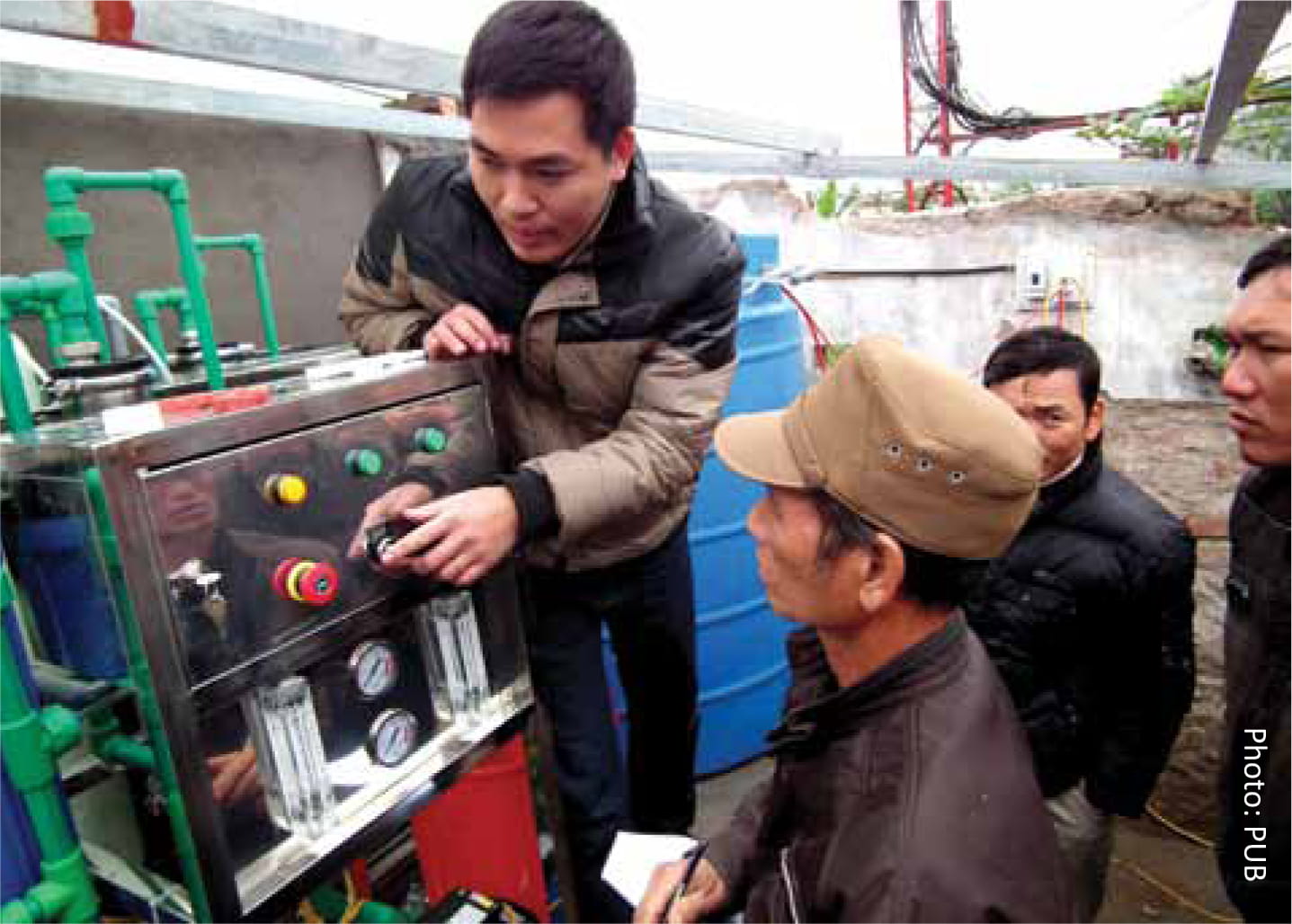
Mr Lan (left), the Reverse Osmosis system supplier, teaching the local electrician in Thai Binh Province, Northern Vietnam, how to operate the system as villagers watch.This project was undertaken by the PUB as part of its corporate social responsibility programme outside of Singapore.
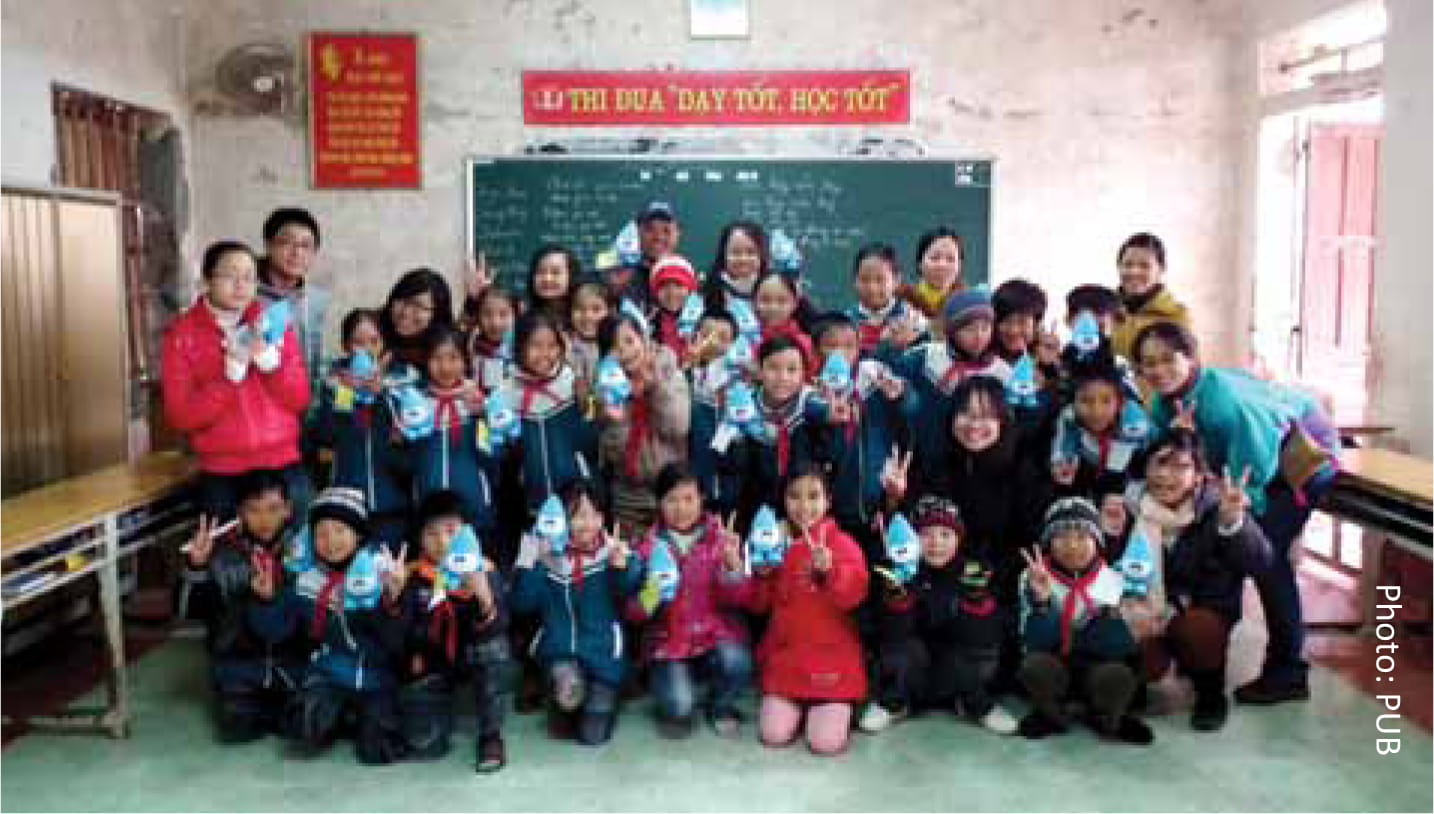
Vietnamese students show off their Water Wally souvenirs sponsored by PUB, Singapore,after a morning session of skits, songs, dances and quizzes.
Taking on board insights gained from an earlier reconnaissance, the PUB volunteers came up with a creative solution and used local supplies and expertise to build rainwater harvesting tanks and reverse osmosis filtration systems, and installed hand-washing points in schools and kindergartens.
“This was the first year PUB had carried out an overseas corporate social responsibility (CSR) project. It was a good opportunity for the team to brainstorm on how we could help to provide a clean, sustainable supply of water that will benefit the larger community,” said staff volunteer, Senior Manager, Gan Shi Ying. Some 3,200villagers and the commune’s medical centre gained from PUB’s contribution.
The project was funded by PUB, its staff and the National Youth Council.“We plan for projects that are scalable so that there can be some continuity.”
Thanks to the creative, sustainable,low-cost water solutions proffered by Singapore entities like Lien AID, PUB and Singapore Polytechnic, for Cambodians like Phhoung and other beneficiaries in remote Vietnam and China, the gift of clean water will be a one that will keep flowing for generations.
The SIF’s Water For Life project focuses on providing access to clean water in rural communities in Asia. Currently in Cambodia, Myanmar and Indonesia,water solutions are customised in each country to local infrastructure and terrain,and the solutions range from provision of bio-sand filters to deep tube wells to membrane filters. It is driven by Direct Service volunteers who travel monthly to contribute time, physical effort and skills to build water access infrastructure and conduct public health and hygiene education classes for the communities.The current Water For Life projects will together impact more than 75,000 adults and children in the three countries.
